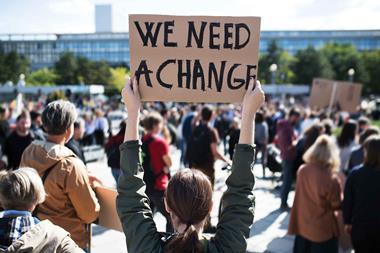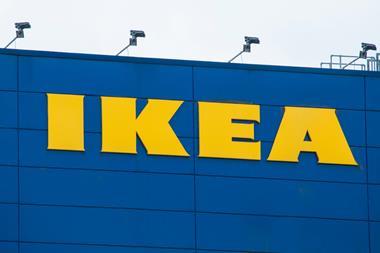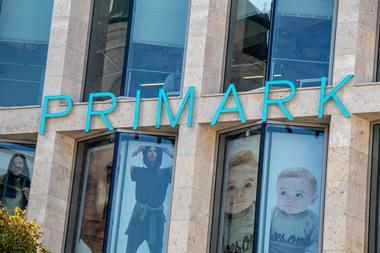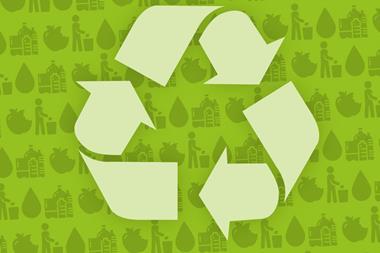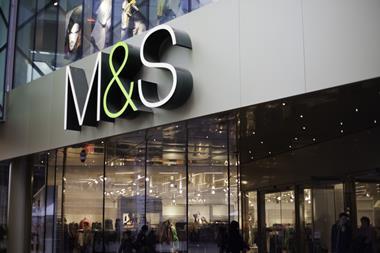PROMOTIONAL RESEARCH
Ikea, Unilever, Adidas and Raylo are examples of retailers tackling the issues brought on by the globalisation of trade.
Retail Week has profiled each of the businesses in its new report produced in association with IBM, Doing good is good for business, which uncovers how sustainability protects both planet and profit.
Below, find out how they did it.
Ikea
Ikea’s commitment to creating a better everyday life for people is reflected in initiatives such as BoKlok, a joint venture with construction firm Skanska that helps get millennials on the property ladder by building affordable housing. Ikea’s new Greenwich store, meanwhile, hosts a learning lab where customers are given tips on reducing waste and shown how to repair and renovate furniture and furnishings.
The company also has a target to become climate positive by 2030, whereby it reduces greenhouse-gas emissions by more than it emits. More than half of Ikea’s climate footprint comes from the materials used in its products and their production. To support its transformation to a low-carbon business, the retailer is moving towards recycled and renewable materials and is pushing for more lightweight construction materials.
Find out more about the Swedish retailer’s sustainability drive
Unilever
Unilever launched its Sustainable Living Plan (USLP) in 2010 – a blueprint on how it planned to achieve sustainable growth while delivering on purpose. The USLP is built around three major goals: improving health and wellbeing for more than 1 billion people by 2020; reducing environmental impact by half by 2030; and enhancing livelihoods for millions by 2020.
Unilever uses a four-point framework to determine the success of the initiative. First, this includes less risk: 56% of agricultural raw materials were sustainably sourced by 2018.
Second, it tracks growth: Unilever’s Sustainable Living brands grew 69% faster than the rest of the business and delivered 75% of its overall growth in 2018.
Third, Unilever says it has led to greater trust; the company is the graduate employer of choice in the fast-moving consumer goods sector in around 50 countries where it recruits.
Fourth, it says it has resulted in lower costs: Unilever has saved €600m (£514m) in energy costs by using less energy in its factories since 2008.
Adidas
Adidas is taking it right down to the product level. Recycled polyester currently accounts for 46% of Adidas apparel, with the target that from 2024 onwards only recycled polyester will be used, both in products and within the wider supply chain where it is feasible to do so.
Most recently, Adidas has partnered with Stuffstr, whose technology platform allows customers to sell back unwanted clothing for store credit, regardless of condition, creating a closed-loop, circular-economy solution.
The Stuffstr service is fully integrated into the existing Adidas app, allowing users to view past purchases, each stamped with an instant sell-back price, generated by Stuffstr. Once a customer has selected at least £20 worth of items to sell back, Stuffstr either dispatches a courier to collect the goods or sends out a postage-paid mail-in bag. Items are then either resold, mended to be resold or recycled into new products.
Raylo
Unburdened by established business models, legacy systems and supply chains, B Corporations are the driving force behind much of the innovation in the retail space. Raylo is looking to transform the way people buy mobile phone contracts – a process it believes is currently characterised by poor service, inefficient high street stores, and expensive and inflexible contracts.
The start-up’s entire business model is based around sustainability and circularity, with a subscription service allowing customers to access the latest mobile technology independent of their network.
New phones, which come with a Pela 100% compostable phone case, are delivered in a fleet of electric vehicles in packaging made from 100% recyclable materials. After 24 months, subscribers can upgrade by posting their old phone back to Raylo in a recyclable box in return for a new phone.
To read more about how the retail sector is tackling sustainability head-on, download Doing Good is Good for Business today to discover:
- Why retailers need to act now when it comes to sustainability
- How to tell your brand’s story, incorporating renewed green credentials
- The evolving tech driving change in sustainability measures
- Why greener practices throughout the supply chain are key
- The retailers going above and beyond to tackle the climate crisis























